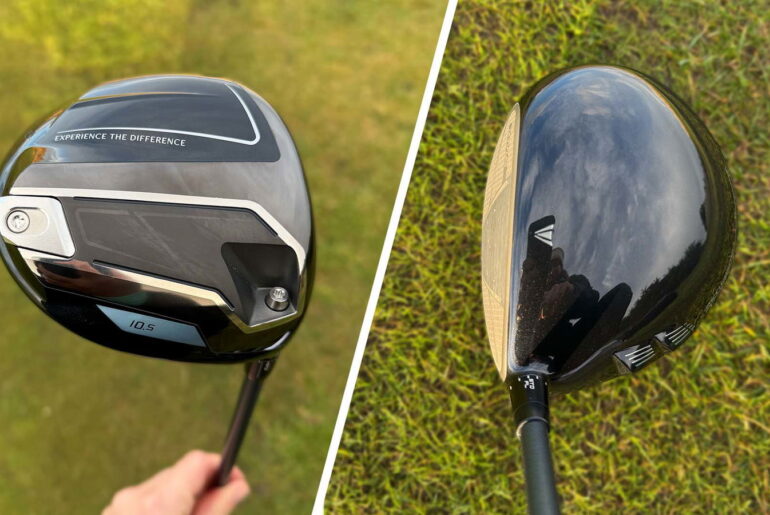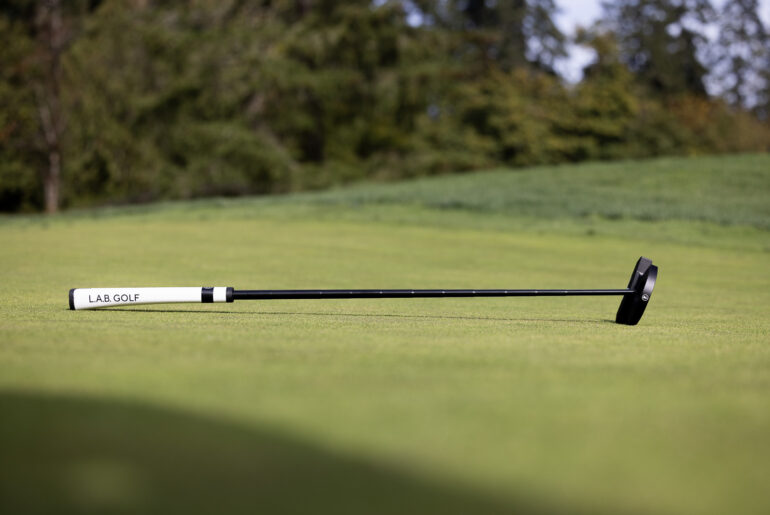
U.S. Golf Cart Market
The U.S. golf cart market is witnessing consistent growth, driven by the expanding use of golf carts beyond traditional golf courses. Estimated to be worth US$ 812.1 million in 2024, this market is expected to grow at a compound annual growth rate (CAGR) of 4.3%, reaching a projected market value of US$ 1.23 billion by 2032. Golf cart sales in the United States currently represent 31.2% of the global market share, highlighting the significant role this market plays globally. The growing adoption of golf carts across various industries, including tourism, hospitality, and even urban environments, is expected to continue fueling this expansion.
Get a Sample PDF Brochure of the Report (Use Corporate Email ID for a Quick Response): https://www.persistencemarketresearch.com/samples/33133
Key Drivers of Growth
Several factors are contributing to the growth of the U.S. golf cart market. Among the most prominent drivers are the increasing number of golf courses and country clubs, the rising popularity of golf as a sport, and heightened awareness of the environmental benefits of electric golf carts. Additionally, strict government regulations on vehicle emissions are pushing more consumers and businesses toward electric-powered golf carts. The growing urbanization and industrialization in the U.S. also play a significant role in boosting demand for these versatile vehicles, particularly in sectors like tourism, hotels, and amusement parks.
Leading Segment and Geographical Region
The Southern U.S. is projected to dominate the U.S. golf cart market, with an expected market share of 30.6% by the end of 2032. This dominance is driven by the region’s favorable climate, which supports year-round use of golf carts, as well as the high concentration of golf courses and country clubs. The Southern U.S. also benefits from its large retirement communities, where golf carts are often used for personal transportation in private neighborhoods. Furthermore, the demand for customized golf carts in this region is surging, particularly as residents seek vehicles equipped with advanced features like air conditioning, stereo systems, and weather enclosures.
Key Highlights from the Report
• The U.S. golf cart market is expected to grow at a CAGR of 4.3% between 2024 and 2032.
• In 2024, the market is valued at US$ 812.1 million.
• By 2032, the market is projected to reach US$ 1.23 billion.
• Southern U.S. is expected to hold 30.6% market share by 2032.
• The demand for golf carts is expanding beyond golf courses to sectors like tourism, hospitality, and security.
• There is a growing trend for customized golf carts with advanced features such as air-conditioning and stereo systems.
Market Segmentation
The U.S. golf cart market is segmented based on product type and end-user applications. The product type segment is typically divided into electric golf carts and gas-powered golf carts. Electric golf carts are increasingly preferred due to their eco-friendly nature and lower operational costs, particularly in urban and suburban areas where environmental regulations are stricter. Gas-powered carts, while still popular in certain areas, are gradually being replaced by electric versions due to their higher efficiency and lower carbon emissions.
In terms of end-user applications, the market is segmented into several categories, including golf courses, tourism and hospitality, retirement communities, resorts, and amusement parks. The tourism and hospitality sector is rapidly adopting golf carts for guest transportation, especially in large resorts and heritage sites where traditional vehicles might not be practical or environmentally friendly. Additionally, there is a significant demand for golf carts in retirement communities, where these vehicles provide a convenient and eco-friendly mode of transportation for older adults.
Regional Insights
In the U.S., the Southern region stands out as a key market for golf carts, primarily due to its warm climate and large number of golf courses. The prevalence of golf carts in Florida, Texas, and Arizona is particularly notable, with these states leading the charge in both sales and usage. These regions benefit from the popularity of golf as a recreational activity, as well as the increasing adoption of golf carts in non-golf-related applications, such as gated communities and hospitality services.
Meanwhile, Western and Northeastern regions are also experiencing growth in golf cart demand, especially in urban settings where electric carts are seen as an eco-friendly alternative to conventional vehicles. However, these regions still lag behind the Southern U.S. in terms of market share, although growth is expected in the coming years as urbanization and environmental awareness increase.
Market Drivers
The demand for golf carts in the U.S. is primarily driven by several factors, including the growth of the golf industry and the rise of electric vehicles (EVs). The increasing number of golf courses and country clubs across the country is directly contributing to the demand for golf carts. Furthermore, electric golf carts have become more popular due to their lower environmental impact compared to traditional gasoline-powered carts. Government regulations aimed at reducing carbon emissions and promoting eco-friendly transportation alternatives are also playing a significant role in this shift.
Additionally, the rise in urbanization and industrialization in various regions of the U.S. is pushing the adoption of golf carts for alternative uses, such as at airports, amusement parks, and resorts. The versatility and eco-friendliness of electric golf carts make them particularly attractive for these applications, further driving market growth.
Market Restraints
Despite the promising growth of the U.S. golf cart market, there are several challenges that could hinder its expansion. The high initial cost of purchasing electric golf carts compared to gas-powered alternatives remains a significant barrier for some consumers. Furthermore, the limited speed of golf carts, typically restricted to around 20 miles per hour, limits their usage to short-distance trips. While this is ideal for golf courses and small communities, it may not appeal to consumers seeking faster or more versatile transportation options.
Additionally, the lack of infrastructure to support golf carts in certain urban and suburban areas may impede their widespread adoption. The absence of designated lanes or charging stations for electric golf carts in some regions could discourage potential buyers from making the switch to electric vehicles.
Market Opportunities
The U.S. golf cart market is ripe with opportunities, particularly as electric vehicles continue to gain traction. As more consumers and businesses look for eco-friendly transportation solutions, the demand for electric golf carts is expected to surge. In particular, the tourism industry offers significant opportunities for golf carts, as they are increasingly being used for guest transportation in resorts, amusement parks, and historical sites. Additionally, the growing interest in customized golf carts with advanced features such as air conditioning, stereo systems, and luxurious interiors provides manufacturers with opportunities to cater to niche markets.
The adoption of golf carts in non-traditional sectors, such as security, patrolling, and light cargo transport, presents a further avenue for market expansion. As industries continue to realize the benefits of golf carts, including their lower operational costs and eco-friendliness, new applications are likely to emerge.
Reasons to Buy the Report
✔ Gain valuable insights into the U.S. golf cart market size and projected growth.
✔ Understand the key drivers, restraints, and opportunities influencing market expansion.
✔ Learn about the leading product types and end-user applications in the market.
✔ Identify the dominant geographical regions and emerging trends.
✔ Stay informed on the latest developments and innovations in the golf cart industry.
Company Insights
The key players in the U.S. golf cart market include industry leaders such as Club Car, Yamaha Motor Corporation, E-Z-GO, and Polaris Industries. These companies are focused on expanding their product portfolios, particularly in the electric golf cart segment, and enhancing their service offerings to cater to the growing demand for customized golf carts.
Recent Developments:
1. Yamaha Motor Corporation has recently launched a new line of electric golf carts designed specifically for use in resorts and tourist destinations.
2. Polaris Industries has introduced advanced technology in their golf carts, including GPS tracking and enhanced security features for commercial and residential use.
Contact Us:
Persistence Market Research
G04 Golden Mile House, Clayponds Lane
Brentford, London, TW8 0GU UK
USA Phone: +1 646-878-6329
UK Phone: +44 203-837-5656
Email: sales@persistencemarketresearch.com
Web: https://www.persistencemarketresearch.com
About Persistence Market Research:
At Persistence Market Research, we specialize in creating research studies that serve as strategic tools for driving business growth. Established as a proprietary firm in 2012, we have evolved into a registered company in England and Wales in 2023 under the name Persistence Research & Consultancy Services Ltd. With a solid foundation, we have completed over 3600 custom and syndicate market research projects, and delivered more than 2700 projects for other leading market research companies’ clients.
Our approach combines traditional market research methods with modern tools to offer comprehensive research solutions. With a decade of experience, we pride ourselves on deriving actionable insights from data to help businesses stay ahead of the competition. Our client base spans multinational corporations, leading consulting firms, investment funds, and government departments. A significant portion of our sales comes from repeat clients, a testament to the value and trust we’ve built over the years.
This release was published on openPR.






